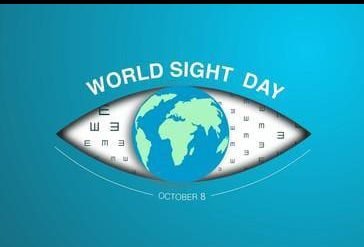As Nigeria joins the rest of the world to mark World Sight Day 2025, international development organization Sightsavers has announced that the country will benefit from Bloomberg Philanthropies’ new $75 million Vision Initiative aimed at tackling untreated vision impairment across low- and middle-income countries and the United States.
In a statement released to commemorate the occasion, Sightsavers revealed that the Bloomberg Vision Initiative will provide large-scale vision screenings, distribute eyeglasses, and fund cataract surgeries to combat avoidable blindness in several nations, including Nigeria.
“As part of this effort, Sightsavers will collaborate with Nigeria’s Ministries of Health and Education to strengthen eye health systems,” the statement read. “This will include training health workers and teachers in basic eye screening, conducting eye examinations, distributing eyeglasses, and extending outreach to communities, workplaces, schools, and out-of-school children.”
The global program aims to screen 11.5 million people, distribute nearly seven million pairs of eyeglasses, and restore sight for about 250,000 individuals through cataract surgeries in the United States, Bangladesh, Cambodia, Ethiopia, Kenya, and Nigeria.
Sightsavers noted that the initiative complements its ongoing call for stronger action to reduce avoidable blindness, particularly from cataracts and uncorrected refractive errors. The organization emphasized that vision and eye health remain under-prioritized globally, even though more than one billion people, one in every eight, suffer from untreated or preventable vision problems.
Read also:
- FG, Bloomberg partner on investment promotion, image laundering
- FirstBank UK adopts Bloomberg TOMS to optimize fixed-income workflow
- Bloomberg declares Ronaldo first billionaire football player
Citing new research from the IAPB, Seva Foundation, and Fred Hollows Foundation, the statement projected that addressing preventable vision impairment by 2030 could add up to $2.45 billion to Nigeria’s economy. Eye health interventions such as cataract surgeries and eyeglass distribution were described as highly cost-effective, yielding an estimated return of $28 for every $1 invested in low- and middle-income countries.
Sightsavers also drew attention to gender disparities, noting that women account for more than half of all cases of blindness and visual impairment worldwide.
Country Director of Sightsavers Nigeria, Prof. Joy Shua’ibu, described the initiative as a game-changer for millions. “Making eye care a priority will be transformational for people, communities, and nations. Good eye health can reduce inequities, help more children stay in school, and enable more adults to work,” she said.
She cited the case of 12-year-old Sa’id, a pupil in Kaduna whose vision improved after receiving eyeglasses through a Sightsavers-supported school screening program. “When my teacher told me I had a problem with my eyes, I was happy because I could now get help. I want to see everything clearly,” Sa’id said joyfully after receiving his glasses.
Prof. Shua’ibu expressed optimism that Bloomberg Philanthropies’ $75 million investment would attract further commitments from governments and donors. “We need strong leadership, sustainable funding, and global partnerships to make avoidable blindness truly avoidable,” she stated.
Sightsavers reaffirmed its support for the International Agency for the Prevention of Blindness (IAPB) and the World Health Organization (WHO) in their efforts to promote universal access to quality eye care services and ensure no one is left behind in the global fight against preventable vision loss.






